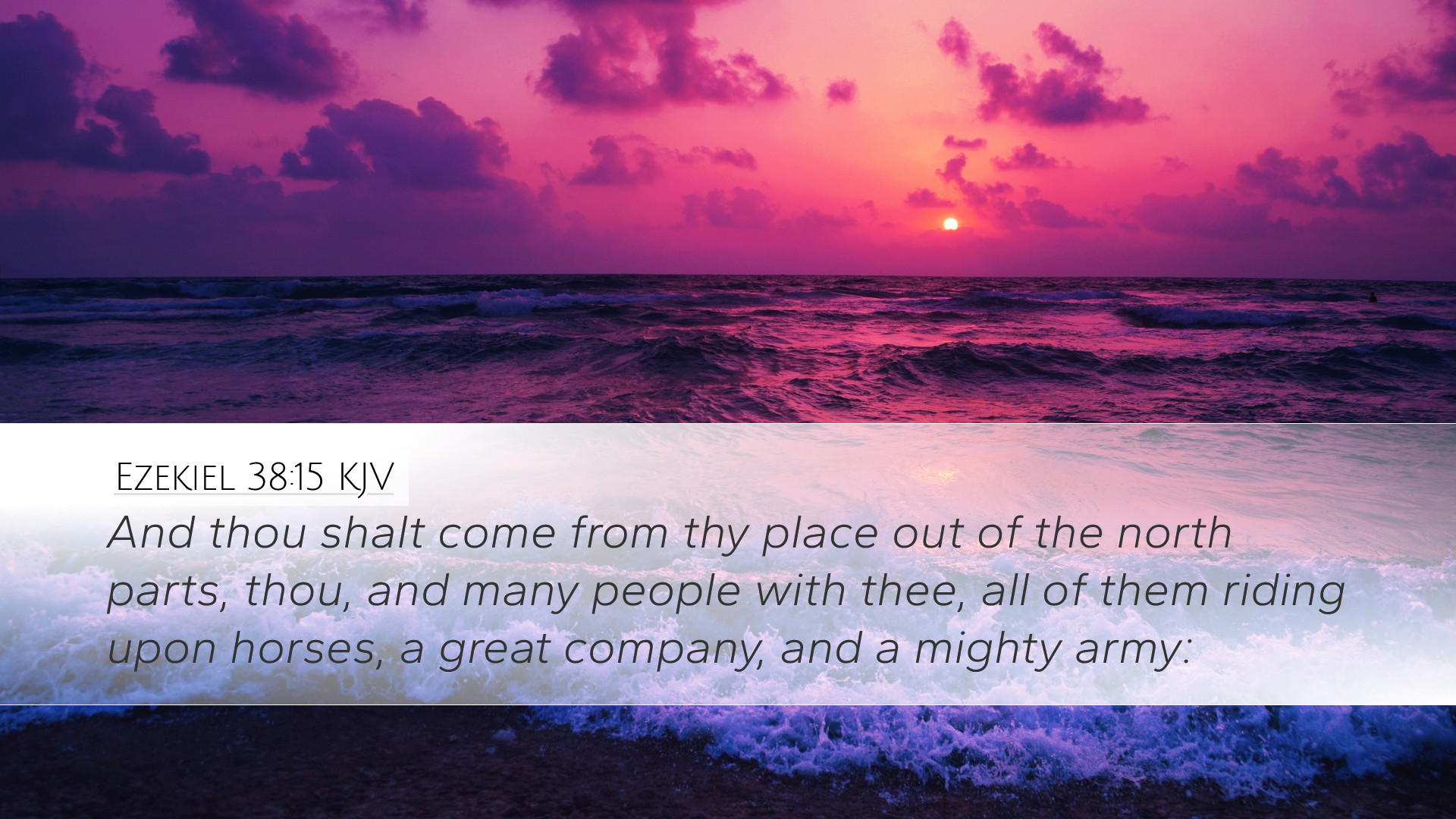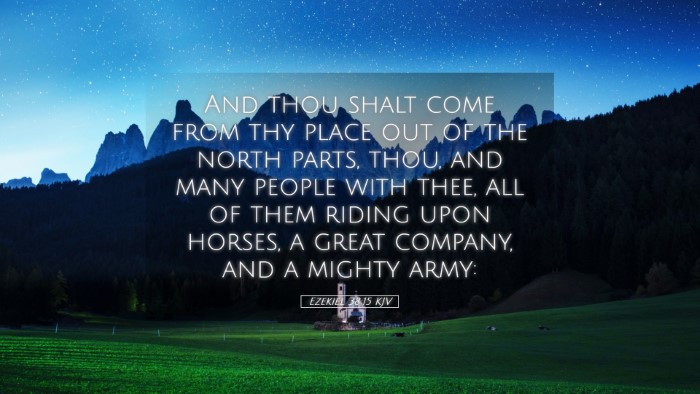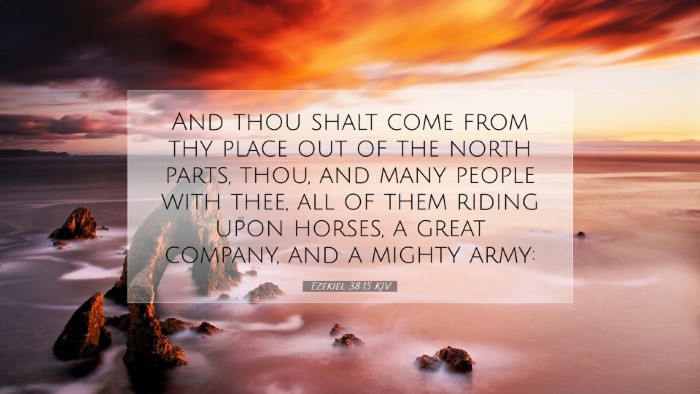Ezekiel 38:15 Commentary
Text of the Verse: "And thou shalt come from thy place out of the north parts, thou, and many people with thee, all of them riding upon horses; a great company, and a mighty army."
Introduction
The prophecy in Ezekiel 38:15 presents a vivid picture of an impending conflict involving a coalition of nations led by Gog, which traditionally denotes a powerful foe. This verse and its context are critical for understanding the eschatological themes surrounding the final battle against God's people. The insights from various public domain commentaries will provide a comprehensive exploration of this verse, addressing its historical context, spiritual implications, and theological significance.
Historical Context
According to Matthew Henry, the references to "the north" in this verse suggest a geographical origin of hostility. The specific mention of “the north parts” implies a formidable adversary preparing for a march against Israel. Various scholars, including Albert Barnes, have linked this to the regions historically associated with ancient enemies of Israel, such as Assyria and Babylon. They highlight the destructive tendencies that these nations embodied historically and prophetically.
Adam Clarke notes that the term "north" has consistently symbolized threats to Israel. In this light, the gathering of forces described in the verse anticipates a climactic confrontation between God’s people and external aggressors. Clarke elaborates that this is not merely a physical invasion but also a spiritual allegory for the perpetual struggles against evil that believers face.
Symbolism of Imagery
The imagery of "riding upon horses" is significant. Matthew Henry points out that horses are traditionally symbols of strength and power in ancient warfare. The gathered forces mentioned in Ezekiel 38:15 not only emphasize military might but also the readiness and organization of these armies. This reflects a grave threat to the safety and peace of God’s people.
Furthermore, Albert Barnes interprets the horses as emblematic of rapidity in the advance of these armies. This suggests that the forces will come swiftly and decisively, underlining the urgency of the conflict. This metaphor also relates to spiritual warfare, calling believers to be vigilant and prepared against the swift advances of evil.
Theological Implications
This verse serves as a reminder of the realities of spiritual warfare. Adam Clarke emphasizes that while this passage references a literal army, it also represents the spiritual battles that believers encounter. The notion of "a great company, and a mighty army" is reflective of the multitude of challenges that come against the faithful, echoing the sentiment found in Ephesians 6:12 that we wrestle not against flesh and blood but against spiritual forces.
Moreover, Matthew Henry observes that God remains sovereign over the powers that oppose His people. This prophecy ultimately portrays God not just as a bystander but as the divine strategist orchestrating the events that lead to His glory and the vindication of His people. This assurance should embolden believers to trust in God’s ultimate purpose amid adversity.
Lessons for Today
Facing the modern challenges of faith, Ezekiel 38:15 translates well into contemporary discussions. Believers are encouraged to remain steadfast and keep their faith amid rising global tensions and spiritual conflicts. As elaborated by Albert Barnes, understanding the historical context can empower today’s church to face its foes with confidence. Believers must recognize the need for robust preparation—spiritually, ecclesiastically, and communally.
- Call to Vigilance: Just as Israel was warned of an impending invasion, modern believers must stay alert, recognizing the signs of spiritual lethargy and moral decline around them.
- Encouragement to Unity: The imagery of a multitude gathering presents a lesson in how God’s people must unite against common threats and challenges that seek to undermine their faith.
- Trust in God’s Sovereignty: The ultimate message of God’s control over chaotic situations should inspire hope and confidence that He will protect and deliver His people, as underlined by Matthew Henry.
Conclusion
Ezekiel 38:15 invites pastors, students, theologians, and scholars to reflect upon the serious nature of spiritual warfare and the assurance of God's control over history. The commentary from notable theologians emphasizes that while formidable adversaries may arise, God's plans for His people remain steadfast and sure. This recognition provides both a grave warning and profound reassurance, encouraging believers to engage faithfully in their spiritual journeys as they acknowledge the coming challenges with a spirit of hope rooted in God’s unfailing sovereignty.


